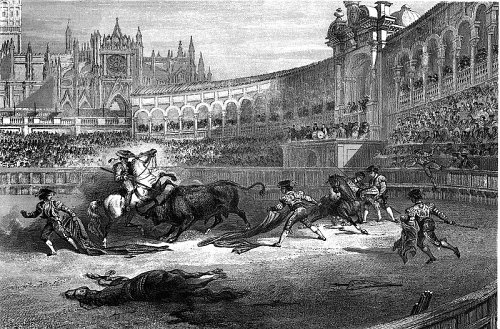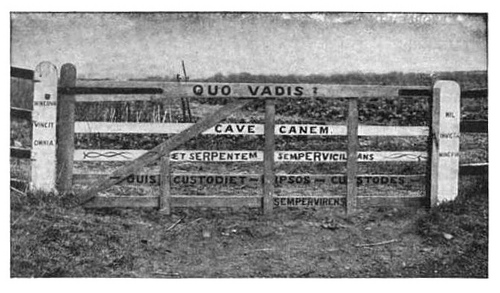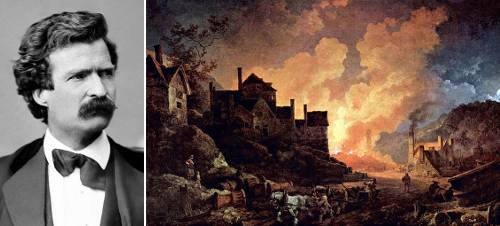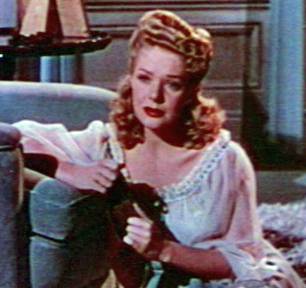
tauromachy
n. the art of bullfighting

tauromachy
n. the art of bullfighting
Literary critic A.N. Wilson panned Bevis Hillier’s 1988 biography of John Betjeman. To get even, Hillier forged a love letter ostensibly written by Betjeman in 1944 and forwarded it to Wilson under the name Eve de Harben (an anagram for “Ever been had?”). Wilson took the bait and included the forged letter in his own biography of Betjeman, which was published in 2005.
Here’s the letter. It contains a hidden message — can you find it?
Darling Honor,
I loved yesterday. All day, I’ve thought of nothing else. No other love I’ve had means so much. Was it just an aberration on your part, or will you meet me at Mrs Holmes’s again — say on Saturday? I won’t be able to sleep until I have your answer.
Love has given me a miss for so long, and now this miracle has happened. Sex is a part of it, of course, but I have a Romaunt of the Rose feeling about it too. On Saturday we could have lunch at Fortt’s, then go back to Mrs. H’s. Never mind if you can’t make it then. I am free on Sunday too or Sunday week. Signal me tomorrow as to whether and when you can come.
Anthony Powell has written to me, and mentions you admiringly. Some of his comments about the Army are v funny. He’s somebody I’d like to know better when the war is over. I find his letters funnier than his books. Tinkerty-tonk, my darling. I pray I’ll hear from you tomorrow. If I don’t I’ll visit your office in a fake beard.
All love, JB

Being on a main road in Ashwell, Hertfordshire, this gate, with its peculiar inscriptions, naturally causes much comment. It stands on a field belonging to Mr. C.H.P. Walkden, whose orchard has suffered severe depredations, and shows his philosophical endeavour to cope with the evildoers.
— Strand, July 1908
In 1938, poet Chard Powers Smith took a half-finished novel to Scribner’s. They liked the text but objected to the title, which they thought would discourage customers. Smith agreed to change it, and the next year The Artillery of Time was published.
Smith’s original title was The Grapes of Wrath.
Steinbeck’s novel appeared a few weeks later.

“Boys, I had great presence of mind once. It was at a fire. An old man leaned out of a four-story building, calling for help. Everybody in the crowd below looked up, but nobody did anything. The ladders weren’t long enough. Nobody had any presence of mind–nobody but me. I came to the rescue. I yelled for a rope. When it came I threw the old man the end of it. He caught it, and I told him to tie it around his waist. He did so, and I pulled him down.”
— Mark Twain, in Albert Bigelow Paine, The Boy’s Life of Mark Twain, 1916
In 1950, Simon & Schuster published a new children’s book, Dr. Dan the Bandage Man. Publisher Richard Simon decided to include a few bandages with each copy as a publicity gimmick. He wired a friend at Johnson & Johnson:
PLEASE SHIP TWO MILLION BAND-AIDS IMMEDIATELY.
The friend wired back:
BAND-AIDS ON THE WAY. WHAT THE HELL HAPPENED TO YOU?
The following successful though illegal operation is reported by Professor A. Gloden in Sphinx, Volume VI, Number 7. In multiplying 6 2/3 by 4 4/5 a student first found the product of the integers, 6 × 4 = 24. He then reduced the fractions to the common denominator … and divided the product of the numerators 10 × 12 by the common denominator 15. The result 24 + 8 = 32 is correct.
In the same way he obtained the correct value of the product 9 3/5 × 2 2/4.
— “Curiosa,” Scripta Mathematica, October 1936

Actress Alice Jeanne Leppert could have chosen any stage name she liked, but she decided on Alice Faye.
She didn’t notice that this is Pig Latin for phallus.
Brad Pitt’s daughter is named Shiloh … which yields an unfortunate spoonerism.
See Double Feature.
In his Night Thoughts (1953), Edmund Wilson lists these “anagrams on eminent authors”:
A! TIS SOME STALE THORN.
I ACHE RICH BALLADS, M!
I’M STAGY WHEN NEER.
LIVE MERMAN: HELL.
AWFUL KILLIN’, ERMA!
MAKZ ‘N NICE COMPOTE.
He gives no solutions. How many can you identify?
08/23/2023 UPDATE: Reader Jonathan Golding worked out the answers:
THOMAS STEARNS ELIOT
ARCHIBALD MACLEISH
ERNEST HEMINGWAY
HERMAN MELVILLE
WILLIAM FAULKNER
COMPTON MACKENZIE
Thanks, Jonathan!
In most elevators installed since the early 1990s, the “close door” button has no effect. Otis Elevator engineers confirmed the fact to the Wall Street Journal in 2003.
Similarly, many office thermostats are dummies, designed to give workers the illusion of control. “You just get tired of dealing with them and you screw in a cheap thermostat,” said Illinois HVAC specialist Richard Dawson. “Guess what? They quit calling you.”
In 2004 the New York Times reported that more than 2,500 of the 3,250 “walk” buttons in New York intersections do nothing. “The city deactivated most of the pedestrian buttons long ago with the emergence of computer-controlled traffic signals, even as an unwitting public continued to push on.”
(Thanks, Tad.)